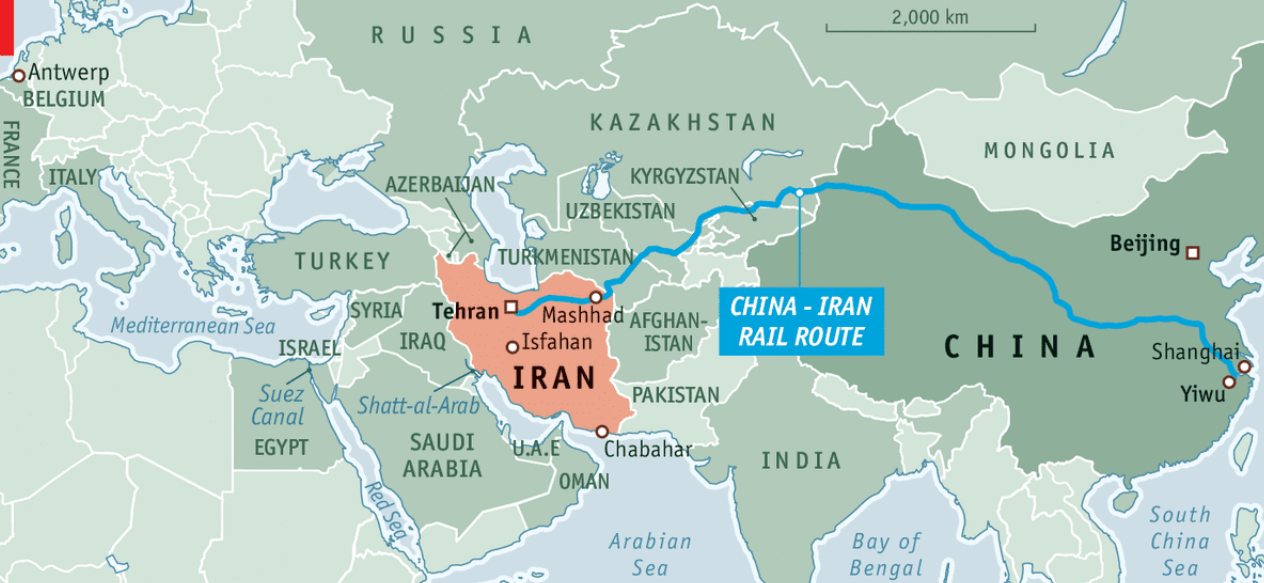The Fifth International Conference Dialogues on China with Mikhail Molchanov
Among the opening panel participants was Mikhail Molchanov, who presented a paper co-authored with Fernando López-Alves, titled “The Middle Corridor of Eurasia: Transnational Connectivity and Regional Challenges.” The paper examined how the ongoing war in Ukraine has reshaped Eurasian trade routes and altered China–EU economic relations.

A Corridor Between Continents
The authors analysed the potential of the Eurasian Middle Corridor, also known as the Trans-Caspian International Transport Route (TITR), as a strategic alternative to the northern routes passing through Russia. This multi-modal corridor—linking China with Europe via Central Asia, the Caspian Sea, the South Caucasus, and Turkey—has become a focal point for governments and investors seeking resilient east-west connectivity.

However, its progress faces significant geopolitical and logistical obstacles, from competing regional interests among Turkey, Iran, and Russia to infrastructural bottlenecks such as port capacities and tariff coordination. The study emphasizes that the Middle Corridor’s success will depend on sustained cooperation, investment, and a shared vision among transit states.
Strategic Shifts in Eurasia
Drawing on data from Eurostat (2025), the paper highlights that EU imports from China declined by 4.9 percent and exports to China by 12.5 percent between 2023 and 2024, even though overall trade volume increased slightly in early 2025. Shipments along the traditional northern rail corridor through Russia fell by 40 percent within a year. In this context, China’s growing interest in the Middle Corridor is part of a broader re-orientation of its Belt and Road Initiative (BRI) strategies in response to Western sanctions and shifting geopolitical balances.
The research also reviews Russia’s competing connectivity projects, including the International North-South Transport Corridor (INSTC) that links Northwestern Europe to India, Iran and the Persian Gulf via Russia and Central Asia, framing them within Moscow’s attempts to retain regional influence despite growing isolation.

A Platform for Dialogue
According to Xinhua News Agency, the Belgrade conference has become one of Europe’s major academic gatherings dedicated to Chinese foreign policy and global geopolitical change. The 2025 edition continued the tradition of fostering constructive dialogue among scholars and policymakers about the future of Eurasian cooperation and global governance.
For MGIS and its community of scholars, Dialogues on China 2025 illustrates how new corridors—material and intellectual—are shaping the world’s next phase of interdependence. The question of who builds, governs, and sustains these pathways will define not only trade but also the evolving international political economy of international regionalization and globalization itself.
From Xinhua (http://www.china.org.cn/world/Off_the_Wire/2025-10/15/content_118125896.shtml):
"BELGRADE, Oct. 15 (Xinhua) -- One of Europe's major academic gatherings dedicated to Chinese foreign policy and global geopolitical change opened Wednesday in Belgrade, bringing together more than 130 researchers from 34 countries.
The Fifth International Conference "Dialogues on China 2025" is a
two-day forum co-organized by the Institute of International Politics
and Economics (IIPE) in Belgrade and the China Institute of
International Studies (CIIS) in Beijing. Themed "Recalibrating the
Global Compass: China and a Shared Future in a Fragmented World"
discussions at this year's forum are focused on China's role in global
politics, multilateral cooperation, and economic relations..
---
About the Authors
Mikhail Molchanov works as a Senior Policy Advisor for the Government of British Columbia, Canada. He is a research associate and adjunct faculty member at MGIS. His work focuses on the international political economy of regionalization and comparative foreign policy.
Fernando López-Alves is Professor of Sociology and Political Science at the University of California, Santa Barbara, and co-director of the Master’s in Global and International Studies (MGIS) at the University of Salamanca. His research explores global governance, comparative modernization, and the sociopolitical transformations of the Global South.
